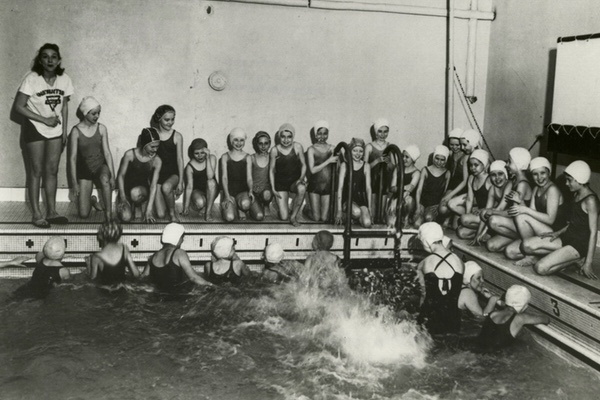How The YMCA Helped Shape America

The American wing of the Young Men's Christian Association — a worldwide organization founded in London in 1844 — launched the first basketball teams and group swim lessons in the U.S., popularized exercise classes and created the oldest summer camp still in operation, the YMCA's historians tell us.
In fact, you could argue that many aspects of our nation's present-day obsession with physical fitness can be traced back to the nonprofit association — popularly known as "the Y" — that now has more than 2,700 YMCAs around the country. Originally geared toward young Christian men, the Y today is open to women and men of all ages and creeds.
"Innovation and impact are in the Y's DNA," says CEO Kevin Washington. "For more than 160 years, the Y has delivered lasting personal and social change by listening to communities and providing innovative, effective solutions to community needs."
Here, according to the Y archives, are four of those innovations:
First basketball games, 1891. James Naismith, the granddaddy of American basketball, was teaching physical education at the International YMCA Training School in Springfield, Mass., when he dreamed up a new indoor winter game using a soccer ball and two peach baskets. The first contest was played at the Y school in December 1891. The Statesman of Salem, Ore., reported on Feb. 7, 1931, that during those earliest games the school's custodian, "whose antipathy to the students was well known," retrieved successful shots from the baskets — using a ladder. ...